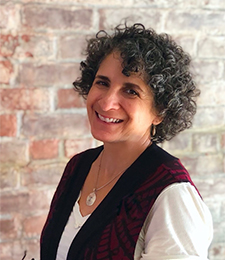A new diagnosis or complicated chronic illness can leave patients and families feeling anxious, worried, and confused when navigating the health care system, insurance companies, and care options. These all- too-common aspects of health care deserve thoughtful, patient-generated solutions for improvement. Thanks to people like Rachel Grob, MA, PhD, who believe qualitative research holds the key to advancing quality patient-centered care, actionable ideas for change are being prioritized. As the inaugural director of the new DFMCH Qualitative and Health Experiences Research Lab, Grob brings expertise from serving as the director of national initiatives for the UW Center for Patient Partnerships (CPP) and from her current position as chair emeritus of the US Health Experiences Research Network and current chair of DIPEx International – both organizations building capacity to conduct impactful qualitative research about people’s personal experiences of health and illness.

Rachel Grob, MA, PhD
“Dr. Grob brings qualitative and mixed methods expertise to the DFMCH research enterprise and innovative resources to support investigation of the experiences that patients have in their interactions with the health care system—a hugely important and terribly neglected area of research and advocacy,” said DFMCH Vice Chair for Research Bruce Barrett, MD, PhD.
The Lab enhances a long-standing partnership between the Center for Patient Partnerships and DFMCH, building on CPP’s substantial portfolio of health experiences action research. Grob and a small team of researchers, program coordinators and postdoctoral students, will work to advance the understanding of health care from the perspective of patients and families. The new lab serves as an umbrella for a fertile portfolio of national and international work.
“This lab symbolizes the department’s commitment to elevate health experiences research by holding a space to collaborate and consult on the important qualitative work being done across the country and throughout the world,” shared Grob.
In addition to securing grant funding, mentoring, publishing, and participating on expert panels and committees, Grob and her colleagues and collaborators will design innovative initiatives to promote evidence-based health care system change. One initiative already underway is to adapt the Experience-Based Co-Design (EBCD) method for placing patients’ diverse experiences at the center of care improvement to enhance primary care for long COVID patients who struggle, along with providers, to understand long COVID and its social impact. It’s a project Grob says closely aligns with the mission of the DFMCH Office of Community Health.
“A lot of the qualitative work we do is pretty cohesive with the work of the Office of Community Health,” added Grob. “Listening to the wisdom of patients is one of the many values the lab shares with the OCH and I look forward to working alongside my DFMCH colleagues to advance these efforts.”
For more information on the Qualitative and Health Experiences Research Lab, or to request consultation on qualitative work you are undertaking, contact Dr. Rachel Grob at rachel.grob@fammed.wisc.edu
Published: October 2022
